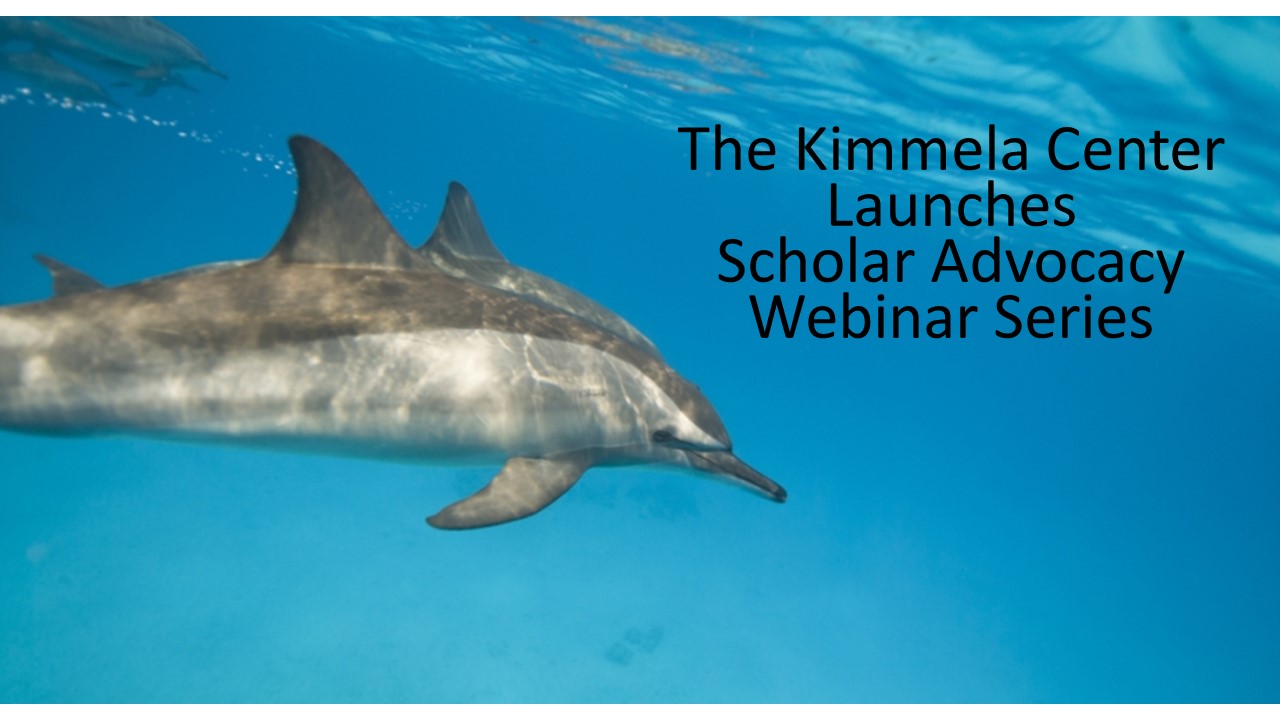Kimmela Center Launches Scholar Advocacy Webinar Series

The Kimmela Center has launched a webinar series on scholar advocacy, an empowered professional path that combines scholarship in various fields with advocacy (for animals in this case).
The main reason for this series is that students, especially those in the natural sciences, are often led to believe that academic scientists should not engage in animal advocacy. They are often told that they can either be a scientist or they can be an advocate, but that they cannot (or should not) do both.
Similarly, working scientists who advocate for the animals they study are often criticized for their advocacy work. The claim is that “science is objective.”
It is true that the process of scientific inquiry and methodology needs to be rigorously objective. But how scientific data are employed to create change does not have to be neutral. Indeed, it is anything but neutral in advocacy for humans – for example in relation to children, patients and homeless people. And there is no reason why this should not apply equally to advocacy for animals. It takes advocacy based in science and scholarship to drive the cultural shift that’s taking place in how we relate to nonhuman animals. Animal advocacy is becoming mainstream.
The Kimmela Center is at the forefront of the movement to promote scholar advocacy for animals.
This year we initiated a live webinar series on scholar advocacy beginning with Scholar Advocacy in Neuroscience and Psychology. Dr. Lori Marino of The Kimmela Center was joined by Dr. Greg Berns of Emory University, Dr. Syd Johnson of Upstate Medical University, Dr. Bob Jacobs of Colorado College, and Dr. Becca Franks of New York University, as they discussed their professional paths as neuroscientists, neuroethicists, and animal psychologists who also advocate for animals in different ways. Greg Berns talked about how he advocates for animals as a neuroscientist by limiting his research to non-invasive and non-coercive studies. Becca Franks discussed how she engages in animal welfare research and teaching. And the whole group provided valuable advice to students in the webinar audience who are navigating the often-complex world of academic neuroscience and animal advocacy.
Our second live webinar, Scholar Advocacy in Marine Mammal Science, featured Dr. Marino, Dr. Naomi Rose of the Animal Welfare Institute, Dr. Deborah Giles of Wild Orca, Kara Elizabeth Henderlight of the American Cetacean Society, and Mariah Kirby, a biology educator. Together, they talked about why they believe it is important to advocate for the protection, conservation and rights of marine mammals, both free-ranging and in captivity.
Upcoming webinars will focus on scholar advocacy in animal law, farmed animal protection, and many other areas.
Please go here for updates on upcoming scholar advocacy webinars and news about other activities and events sponsored by The Kimmela Center.
And thank you for making these good things possible. Your tax-deductible donation, large or small, helps support young scholar-advocates, develops scholar-advocacy professional programs, and empowers scholarship-based animal advocacy efforts of all kinds.
